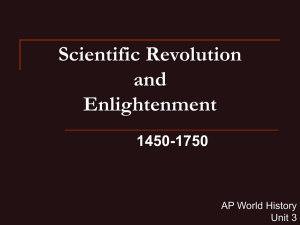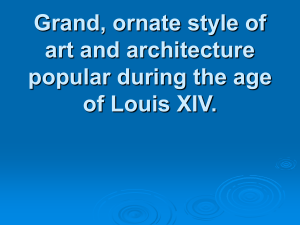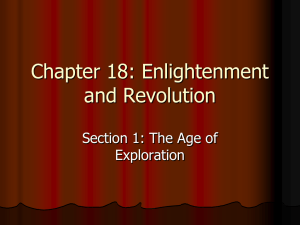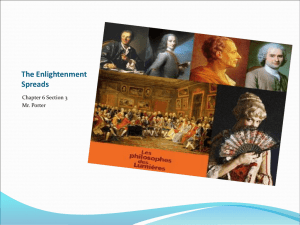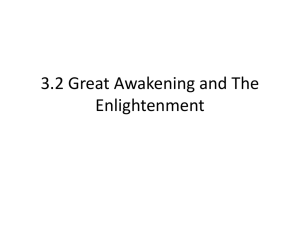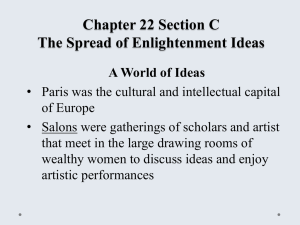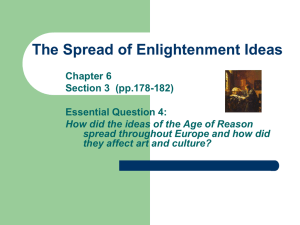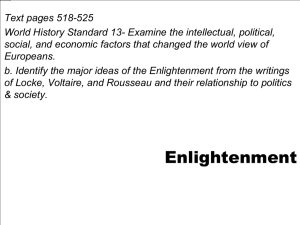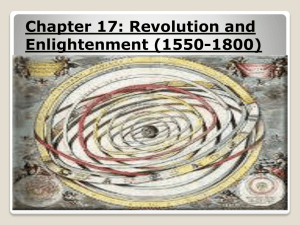The Enlightenment
advertisement
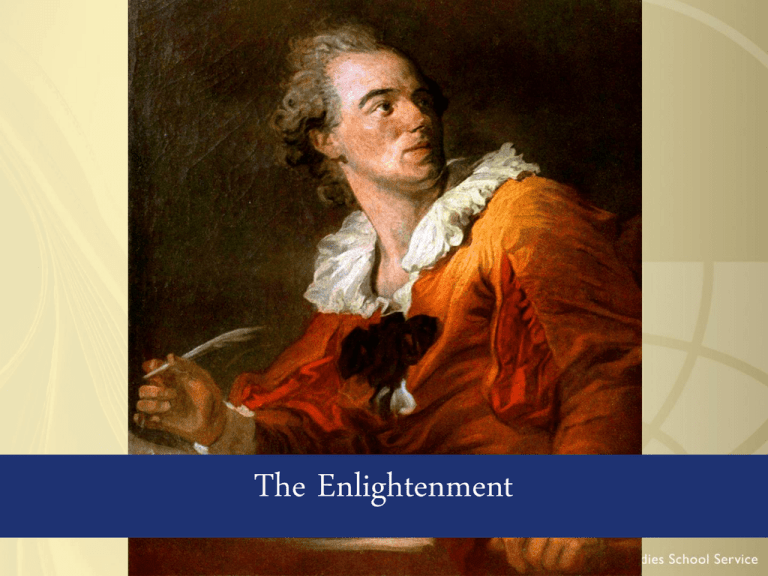
The Enlightenment Essential Questions • Why did the scientific breakthroughs of the 16th and 17th centuries have such a powerful effect on so many Enlightenment figures? • The Enlightenment saw “reason” as the sole trustworthy guide to arriving at truth, not only about the natural world but also about human society. Why was this seen as such a radical and challenging idea in 18th-century Europe? • Key Enlightenment thinkers such as Thomas Hobbes, John Locke, and Jean-Jacques Rousseau disagreed on many matters—such as the nature of the individual, natural rights, or the basis of legitimate government. What ideas did these thinkers hold in common? Why did they disagree on so many fundamental issues? Essential Questions (continued) • Aristocratic women such as Madame de Pompadour conducted salons where Enlightenment thinkers discussed issues with French aristocrats and other wealthy individuals. Why did such gatherings attract so much support from the very groups the Enlightenment often criticized? • Why did a number of powerful European monarchs also show great interest in Enlightenment ideas? • How did the Enlightenment contribute to the age of revolutions that began with the American Revolution and the French Revolution? What Was the Enlightenment? The Enlightenment was an intellectual movement in Europe during the 18th century that led to a whole new worldview. What Is Enlightenment? According to the 18th- century philosopher Immanuel Kant, the “motto” of the Enlightenment was “Sapere aude! Have courage to use your own intelligence!” (Kant, “What Is Enlightenment?” 1784) Immanuel Kant The Scientific Revolution The Enlightenment grew largely out of the new methods and discoveries achieved in the Scientific Revolution The equatorial armillary, used for navigation on ships Francis Bacon and the Scientific Method • The scientific method • Observation and experimentation • Testable hypothesis Sir Francis Bacon Isaac Newton and the Scientific Method • Used the scientific method to make a range of discoveries • Newton’s achievements using the scientific method helped inspire Enlightenment thinkers Sir Isaac Newton Enlightenment Principles A meeting of French Enlightenment thinkers • Religion, tradition, and superstition limited independent thought • Accept knowledge based on observation, logic, and reason, not on faith • Scientific and academic thought should be secular The Marquis de Condorcet • French mathematician • Sketch for a Historical Picture of the Progress of the Human Spirit
